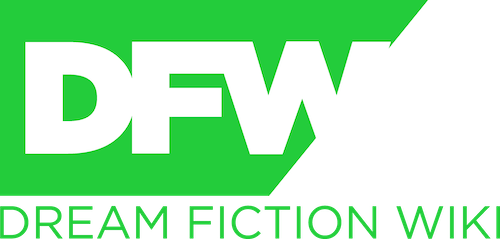Nimbus Electronics Limited is a British consumer electronics company, founded in 2019, by ex-Laserium Mars developers Ryan Martin and James Fields. Their headquarters are located in London, while their secondary offices are located in Wilmslow, Chesire, UK.
Aside from being one of the main developers of the Neptune, Nimbus also operates as the developer relations team for the project. They're regarded as one of the first "unicorns" in Europe.
History
On January 30, 2019, ODIMG Technologies filed for bankruptcy. The former key members of the operations, Ryan Martin and James Fields, went on to form Nimbus Electronics Limited, with backing from Brittany Kurosaka, the owner of Qualis. They shortly afterwards acquired patents and trademarks related to Laserium Mars and its then-planned successor, along with other patents, including patents related to Mattel's HyperScan console, albeit for a new console accessory.
The company's purpose was "to produce a series of consoles that can take on two of the biggest console franchises ever (Xbox and PlayStation)".
Around March 2019, Nimbus Electronics proposed a Sinclair-branded 3D-capable video game system to Sinclair Research and Sky plc (owner of the Sinclair trademark), but as result of the failure of ZX Spectrum Vega+, the proposal was denied.
In May 2019, Nimbus Electronics and Virgin Group announced to work on a gaming console, however those plans were quickly halted, which resulted in Nimbus pitching around the project until they pitched it to Old Dominion Interactive Media Group, which gave birth to the Neptune project.
In September 2019, Nimbus Electronics hired people formerly employed by Blaze Europe as part of board of directors.
Later in 2019, Nimbus Electronics announced that a possible acquisition of Konix Systems may take place (both of them are co-developers on Laserium Neptune) for £1.7 billion, depending on the success of the Neptune.
They hired Angela Ahrendts as the Head of Worldwide Retail and Distribution Operations, Vipul Ved Prakash as the Head of the Rimyoni Search team, and Gerard Williams III as the Head of Micro-Design that year. The Micro-Design team will handle chip design and other kinds of micro-sized hardware design activities, and will also have the Nimbus subsidiary Nimbus Taiwan report to the team.
Corporate units
Nimbus Wilmslow
Nimbus Wilmslow is the internal development headquarters of Nimbus Electronics, which houses teams working on Rimyoni and related products, as well as quality control departments and testing facilities, who test durability on every prototype, such as water durability, "hammer tests" and earphone quality assurance.
They reside in a countryside mansion, painted in white, gold and teal, surrounded by forests, with wind mills and solar panels for generating energy.
Nimbus Taiwan
In September 20, 2019, Nimbus Electronics Limited hired people who have worked at numerous manufacturing plants for numerous hardware-focused companies[note 1] and reportedly also "migrated Chinese factory workers", to form a subsidiary called Nimbus Taiwan, with its business based in New Taipei, Taiwan. To maintain their business aside from manufacturing and developing Neptune hardware, it also works for various electronics companies as an OEM and a semiconductor foundry.
The business is split between five units; Outsourced Components, Semi-Conductors, Memory and Storage, DRM Technology and Display Technology.
Vexner

Vexner Laboratories is an American company specializing in sound technologies, especially in audio noise reduction, audio enhancements, audio remastering and audio encoding/compression.
The company was founded in 2004 in Fresno, California by Max Vexner Jr., and was owned by Laserium Holdings until 2019, when it was acquired by Nimbus Electronics.
Partnerships
Music
In February 2020, Nimbus announced the partnerships with Beatport, Spotify, Qualis Music Group and Bandcamp to provide songs for the database of the Jupiter's song recognition feature.
Rimyoni
Main article: Rimoyoni (operating system)

See also
Notes
- ↑ The companies in question were listed as follows: Quanta Computer, Pegatron, Saygus, Compal Electronics, Xperi Corporation, Acer, Funai Electric, Hitachi, LG, Western Digital, Memory-Tech Holdings, GlobalFoundries, AMD, Kingston, NVidia, Corsair, Intel, TCL Corporation, Mitsumi, Qualcomm, Sharp, Kyocera, Hosiden, BluFocus, CESI Technology, Scenarist, Texas Instruments, CyberLink, Macrovision, Ritek, Irdeto, MediaTek, Denuvo, China Huaulu Group, Samsung, Pioneer, Silicon Motion, Trek Technology, Micron, ATP, Mitsubishi, Lite-On and Toshiba
